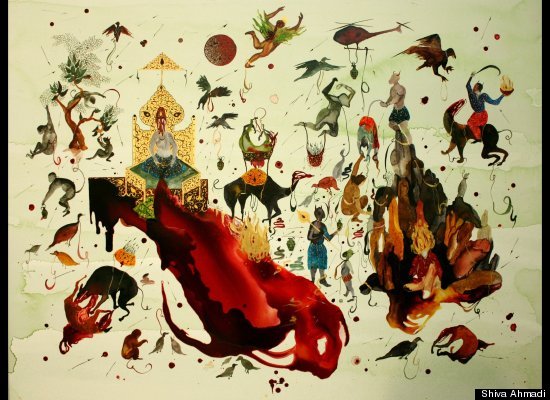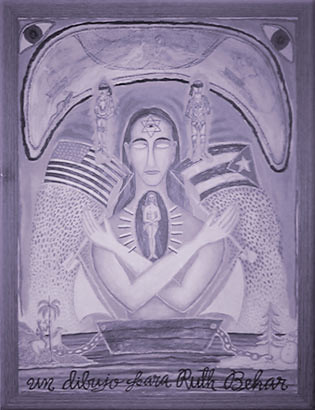Ghost Dog: You know, in ancient cultures...bears were considered equal with men.The last entry on the Five Percenters got me thinking about RZA (aka Robert Diggs aka Bobby Digital aka Ruler Zig-Zag-Zig Allah aka The Abbott) which got me thinking about the film Ghost Dog where RZA has a cameo.
Hunter: This ain't no ancient culture here, mister.
Ghost Dog: Sometimes it is.
The film is filled with all sorts of jarring cultural juxtapositions. Forest Whitaker stars as an African-American Samurai who struggles against Italian mobster hip-hop fans. He speaks no French or Creole and yet his best friend in the world is Raymond, a Haitian Ice Cream Vendor who speaks no English. And apparently the unnamed city where the film takes place has a large number of people from different cultural backgrounds who live on apartment building rooftops. My pet theory is that the film is trying to say that we are all like the people on those rooftops, separated by huge gulfs of space. Genuine communication is impossible (unless you are a mind reader) and the best we can hope for is occasionally guessing what another person wants or needs from indirect cues (like Ghost Dog does with Raymond).
My favorite scene is the one where Ghost Dog encounters RZA in the street.
As the two approach, RZA's character (credited as "Street Crusader") says:A unique moment of understanding and P.E.A.C.E. between two warriors from different civilizations.
"Ghost Dog...
Power
Equality."
While Ghost Dog replies:
"Always
C
Everything, my brother."
Transcript: Ghost Dog: Way of the Sammurai

